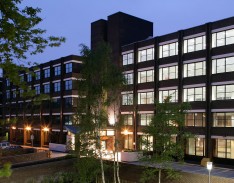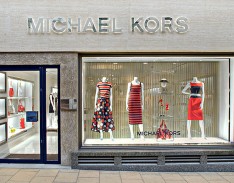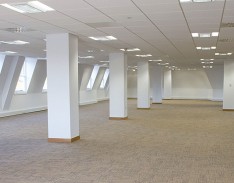How we benefited from a ‘strata freehold’ agreement
Thursday, 07 July 2005
When we relocated to Birmingham’s Ludgate Hill recently, just a stone’s throw from St Paul’s Square, it appeared to be a perfectly normal transaction.
This seemingly unremarkable acquisition of the fifth floor of Griffin House was, however, far from an everyday matter. In fact, it could represent the beginning of a revolution in the Midlands property market.
Unlike the majority of new office occupants, we didn’t acquire a conventional lease for the property, nor did we purchase the building freehold. Instead, we entered into a ‘strata leasehold’ agreement with property owners New Wood Securities.
This means we now effectively own a horizontal ‘slice’ of Griffin House (hence the term ‘strata’). In fact, we agreed a 150-year lease, although the deal operates in most respects as an outright purchase, with just a ‘peppercorn’ annual rent payable.
As a result, we can use the property; refurbish it or sub-let, just as any owner would expect to do, although technically, we do not own the freehold.
On the other hand, owner New Wood Securities has now effectively ‘sold’ a portion of its property, receiving a negotiated purchase price for the near 2,500 sq ft fifth floor. It chose to forgo the recurring income from its asset in the form of market rent.
Whilst this might appear a perfectly sensible arrangement for both parties, this new ‘strata leasehold’ agreement is rare. Nationally, only a handful of similar deals have been concluded of late, notably in London and Manchester.
So what attracted both parties to this arrangement? For us, it was simply a question of availability. Director Steven Jelfs explained: “Our space requirements are relatively modest but we preferred to buy rather than rent and currently, smaller freehold office accommodation is hard to find in and around the city centre.
“Standalone properties between two and three thousand square feet are rarely for sale. One solution, therefore, is to take a horizontal slice of a larger building.
“Yet traditionally, owners are reluctant to sell on this basis, whilst prospective purchasers may worry about future disposal, should they wish to move on.
“In our case, this consideration was outweighed by our confidence in the marketability of this property, plus the fact that buying the strata leasehold represents an ideal tax-efficient pension vehicle for our directors.”
For the owners of Griffin House, strata leasehold provides a smart solution for particular properties in defined locations.
Director Dominic Stokes said: “There is fierce competition locally for freehold buildings which are suited to owner-occupier businesses. Medium size properties, possibly three to four storeys, are in short supply in the city centre and tend to be bought up by developers. So, we are looking to create this type of market.”
It certainly sounds logical, but in the absence of any local precedents, how could the company be sure there was a market for this product?
“Generally, for properties under five thousand square feet, it’s hard to tell who is looking,” explained Dominic. “Our experience and local market insight suggests there is a demand, but the only sure way to know is to put the product ‘out there’ and wait for the response.”
“Where the right circumstances exist we may instruct agents to be flexible in approach. Strata leasing should be viewed as a constructive alternative to more conventional deals, but at present it does require some innovative thinking from all sides. For example, there is a differing perception between buying a freehold outright and even a 150-year lease.
“This is a compromise the purchaser has to consider. On the owner’s part, you are waiving the prospect of perpetual income and limiting the future usage of the building. These are all factors to bear in mind.”







